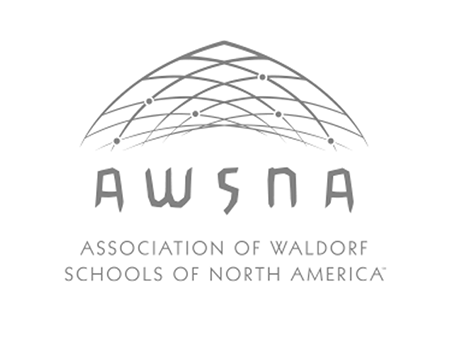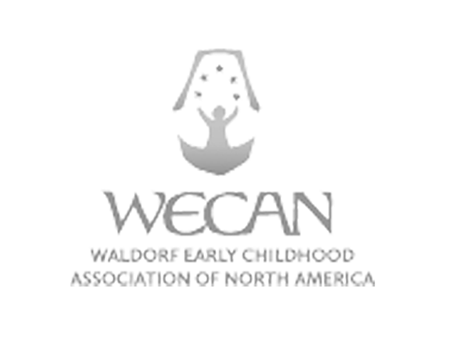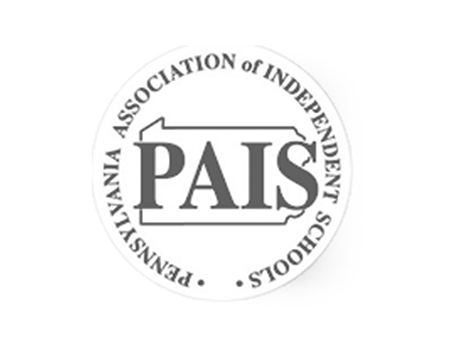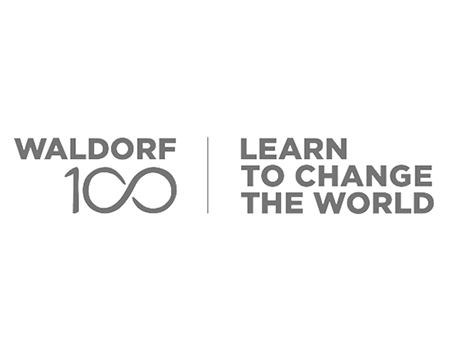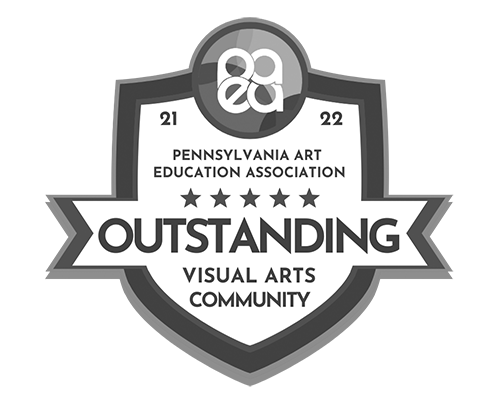Lorem ipsum dolor sit no nummy.

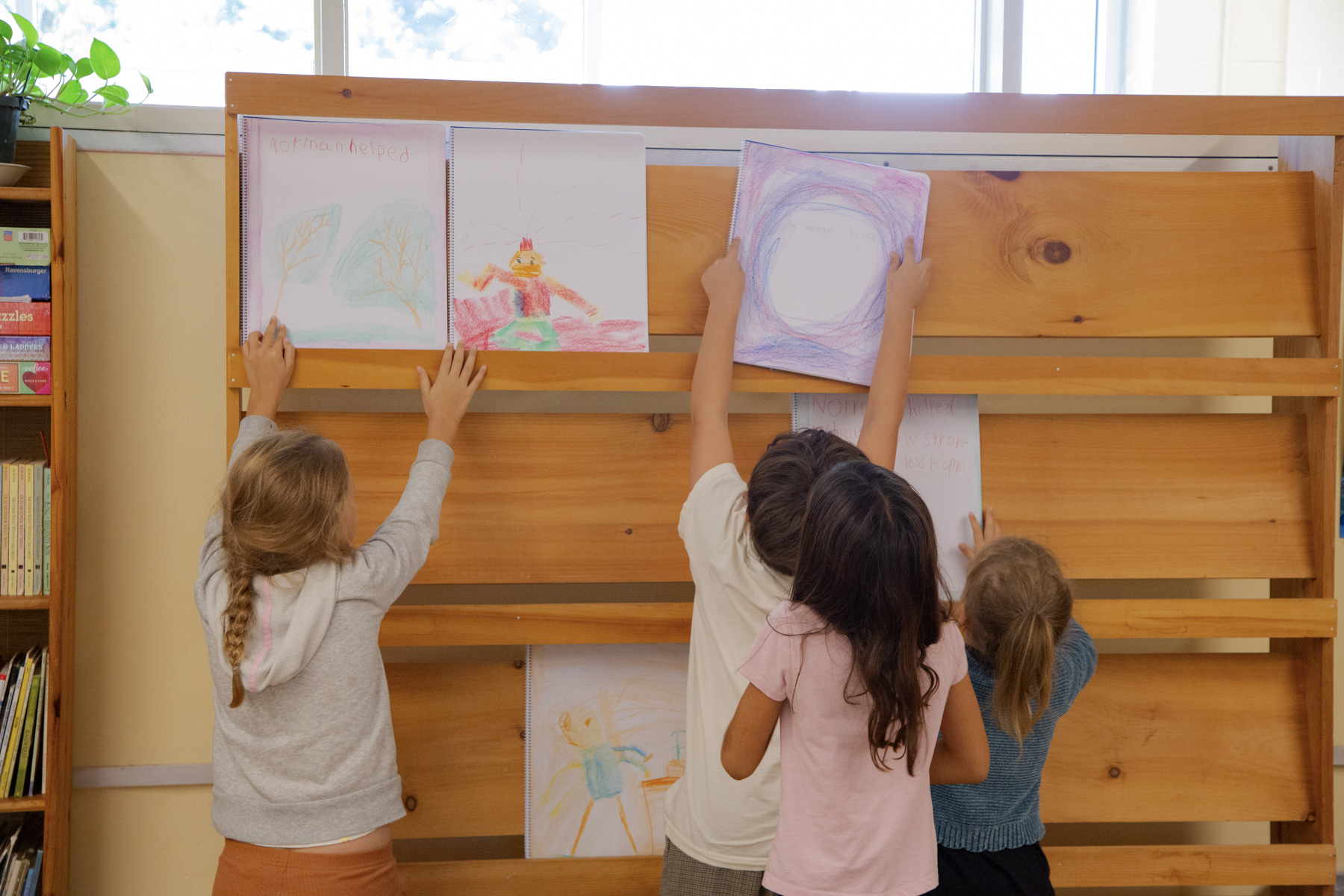
Grades 1-5
Children possess a natural honesty, curiosity and interest in their world; retaining these innate characteristics, while expanding their intellectual capacity, is the primary goal of Waldorf education. By using the arts and creativity to immerse children in the learning process, by timing the introduction of material to coincide with the age at which students are able to truly understand and work with the concepts, and by providing a safe, open and trusting environment in which to learn, River Valley Waldorf School builds confident, avid, inspired learners…for life.
For the grade school child, the day begins with Main Lesson—a two hour period of time where a particular topic is studied for a block of three to four weeks. Whether the main lesson is math, language arts, science, geography or history, the academic learning is strengthened by both an artistic and an active/practical component. An interdisciplinary, hands-on approach to learning is fundamental to Waldorf grade schools. For example, in the classroom 3rd graders study the components of traditional farming through the seasons. They then practice what they have learned: they start seeds inside, transplant, amend the soil in the garden beds using our own biodynamic compost—which they have helped build—and, once the salad greens reach maturity, they get to eat them in their school lunches. Some seedlings and salad greens are sold to the community. In the process they not only experience the power of growing one’s own food and build a stronger connection the rhythms of nature, but they have a direct experience with the academic concepts of natural sciences, nutrition, measurement, time and money! Practical experiences keep children engaged and encourage problem solving, independence and strong executive function and are found throughout the curriculum at River Valley. In all grades the children create their own illustrated main lesson books to demonstrate what they learn. From the four arithmetic functions in first grade to fables and fairy tales in second grade, through botany and the Greek myths in fifth and the physiology and the Age of Revolutions in eighth, the main lesson books are filled with essays, descriptions, drawings, and mathematical concepts that are poetic, accurate, and beautifully illustrated. These books become a treasure for many families, a beautiful record of their child’s process of learning through the grades.
The class teacher is another unique aspect to Waldorf education. The class teachers stay with their classes from one year to the next, the children benefiting from the security of long-term relationships where learning is enhanced, confidence built and social and emotional skills deepened. Given the increased need for specialization in the middle school years, grades 6, 7 and 8 are taught using a more collaborative, team approach; the class teacher being part of that team.

First Grade
In 1st grade children still have just as much energy as they did in kindergarten, so it is vital that the teacher engage this lively bunch with creativity and activity in all lessons! The groundwork is laid for increasingly complex handwriting skills and drawing with form drawing. Letters are initially introduced imaginatively through pictures. Alliterative verses reinforce the sounds and are carefully copied into the student’s first readers together with illustrations. As the school year progresses, fairy tales, folk tales and nature stories are told, recalled, discussed and dramatized—honing memory, comprehension and language skills. Utilizing this whole language approach, augmented by traditional phonics techniques, these tales are also written into lesson books, allowing children learn to read from treasured records of their own writing. The four basic mathematic processes are personified and introduced through engaging stories: poor Minnie Minus seems to lose everything she puts into her pockets through the holes in the bottoms… Multiplication tables are set to music and sung; they are also clapped and stomped to rhythm as well as being read and written. Engaging the body in memory is an effective tool used in Waldorf education. In the early grades, science is taught through direct experience: nature observation, the creation of pictorial journals, and classroom discussion.
Specialty Subjects:
Spanish, physical education, choral music, handwork, Eurythmy, drawing, painting, modeling, drama, pentatonic flute
Second Grade
2nd graders are beginning to notice more differences in the world and in those around them. Traditional animal fables along with stories of individuals who have made extraordinary contributions to humankind form the core of the language arts curriculum this year. These tales both confirm the differences in personality traits among people and balance our challenges and shortcomings with those aspects of ourselves that can be used in service to the greater good—thereby legitimizing their age-specific experience of the world. As reading skills continue to expand, independent reading— both silent and aloud— is encouraged. Independent writing also begins to play a greater role in language arts. During math lessons, place value, carrying, borrowing, long division and mental math are added to arithmetic skills. Multiplication tables from 1-12 are thoroughly mastered this year..
Specialty Subjects:
Spanish, physical education, choral music, handwork, Eurythmy, drawing, painting, modeling, drama, pentatonic flute
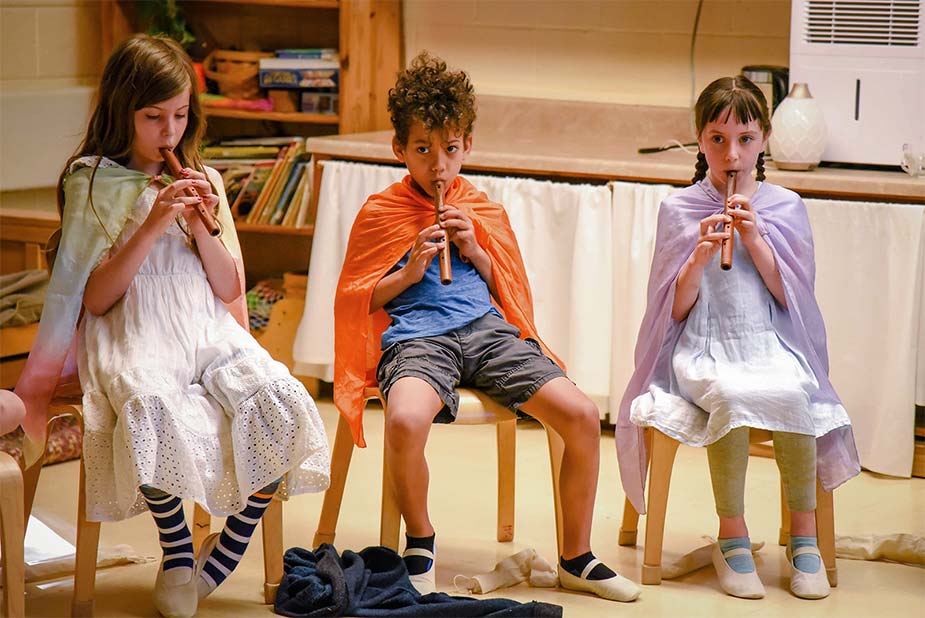
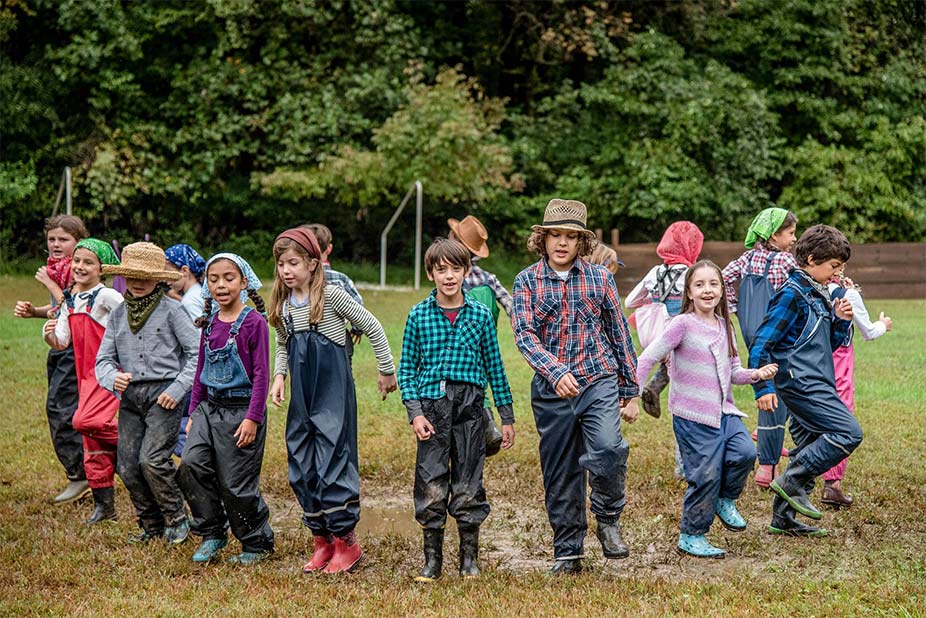
Third Grade
Nine year olds are both interesting and challenging individuals! Students at this age often begin to question authority, to question themselves and to demand answers from the world around them. Stories of the Hebrew people are used during this year which, by reflection, lend context to the student’s experience of questioning. It also begins a six year journey which exposes students to the beliefs and evolution of many major world cultures. Spelling and grammar instruction becomes more formal. Practical lessons include Native American studies, housing, farming, gardening and building. While continuing to hone and expand the math skills from second grade, third graders also jump into practical aspects of math, including time, measurement and money. A significant rite of passage at RVWS occurring in third grade is ‘the farm trip.’ Our students spend the school-week living and working at Hawthorne Valley Farm in Ghent, NY through their visiting students program.
Specialty Subjects:
Spanish, gardening, physical education, choral music, handwork, drawing, painting, modeling, Eurythmy, drama, recorder
Fourth Grade
4th graders are becoming more confident and sometimes seem larger than life, filled with both burning questions and profound realizations. The study of Norse mythology, with its brave, boisterous, mischievous and fallible gods & goddesses truly speaks to this age-group. Geography is introduced to support the student’s expanding sense of their neighborhood and world. It begins in their own classroom, fanning outward to encompass the school property, the student’s route from home-to-school, the local community and our region. Knowledge of geography is extended each year through 8th grade until students have been all around the globe! In mathematics, the four basic operations and measurements continue with greater complexity, and fractions are introduced. The study of the animal kingdom and its relationship to the human being forms the core of the 4th grade science curriculum. In language arts, grammar is studied through parts of speech, verb tenses and continued study of punctuation. The 4th grader’s increasing capacity and sense of objectivity is fed through more independent work this year.
Specialty Subjects:
Spanish, string orchestral instrument, physical education, choral music, handwork, drawing, painting, modeling, Eurythmy, drama, recorder
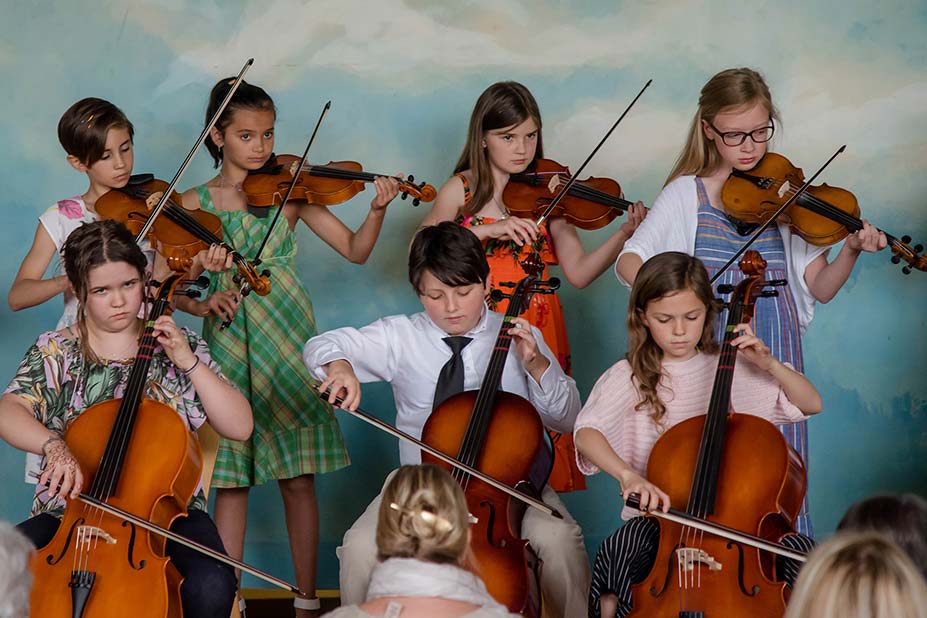

Fifth Grade
Often referred to as the “golden year” or the heart of childhood, students in 5th grade are typically creative, enthusiastic about learning, eager for new challenges and more capable of sustained effort and independent work than ever before. They appear physically strong and balanced. Adolescence is approaching but has not yet arrived, allowing a window of harmony in the social and scholastic arenas.
5th graders study the wonderful stories from Greek mythology as well as the art and architecture and big ideas that arose from ancient Greece. Adding excitement to the school year, the students train for and participate in a multi-school regional Greek Olympiad. The cultures of ancient India, Persia, Mesopotamia and Egypt are also explored during 5th grade, cultivating an appreciation for the varied influences resulting in our present-day western civilization. In math, fractions are reinforced, and decimals and the metric system are introduced and practiced. The skills gained in form drawing in earlier grades are utilized during freehand geometric drawing; this provides an introduction to working with compasses and protractors in 6th grade. The science curriculum’s focus is botany, the students taking a journey through the world of plants, from the “lowly” fungus and lichen to the great deciduous trees and refined flowering plants. Insect pollinators are also a part of the botany block. Geography expands to encompass all of North America—its mountains, rivers, neighboring oceans, natural resources & some folklore of the regions.
Specialty Subjects:
Spanish including grammar, string orchestral instrument, sculpture, Eurythmy, recorder, physical education, choral music, handwork, drawing, painting, modeling, drama

© River Valley Waldorf School Privacy Policy
